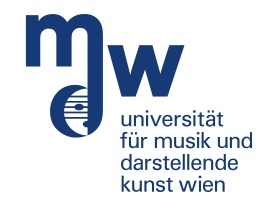About
Wider arts-based research context:
Études for live-electronics is an artistic research project that aims to re-define the western classical music-influenced concept of études, by applying it to the diverse practices in the field of electronic music performance, where most live-electronic practitioners (LEP) are simultaneously instrument developer, interface designer, composer, and performer. Practising études is a fun method to gain skills on acoustic instruments. However, with electronic instruments, the interface and the sound generator are decoupled, interchangeable, and instrument parts can even be driven algorithmically. Thus, the skills required by each LEP are unique, and research on knowledge transfer in electronic music performance is subsequently needed, a shortcoming, that is often discussed in the community for New Interfaces for Musical Expression.
Objectives:
With the overall aim to develop an agile concept of études, we will test the hypothesis that its core element – the encounter with a problem through repetition and slight variation – can be transferred to a multi-culturally driven, collaborative research procedure, that facilitates knowledge exchange through the practice of live-electronic music performance creation. Our goal is to build a community of key agents in the field that will study the acquisition and transference of skills and implement actions to share this knowledge.
Approach:
With cyclically recurring, artistic experiments in collaboration with practitioners from diverse backgrounds, such as sound artist KMRU aka Joseph Kamaru (Kenya), composer Luong Hue Trinh (Vietnam), music technologist Bernt I. Wærstad (Norway) and interaction designer Astrid Bin (UK), we will explore new methods to create skill-derived electronic instruments, historically-informed repertoire and collaborative live-electronic performances. For a multi-cultural perspective, the artistic research team will be in dialog with local music scenes in East Africa, Southeast Asia and Europe, giving public workshops and concerts in collaboration with international partner institutions. From the data collected during these actions, we will formulate a new understanding of études, applicable to live-electronic instruments of the 21st century.
Innovation:
This project will lead to methodological innovations for the development of electronic instruments and related repertoire, represents the first long-term investigation of how LEPs develop embodied knowledge with electronic instruments, and will, furthermore, explore new forms for the preservation of computer music works, by establishing an active musical live-performance practice around them. Primary staff involved:
The project will run under the supervision of Alex Hofmann, working together with two PhD students at the University of Music and Performing Arts Vienna (mdw), in a strong collaboration with Karlheinz Essl from the Department for Composition (mdw).
This research was funded by the Austrian Science Fund (FWF) [AR743].


